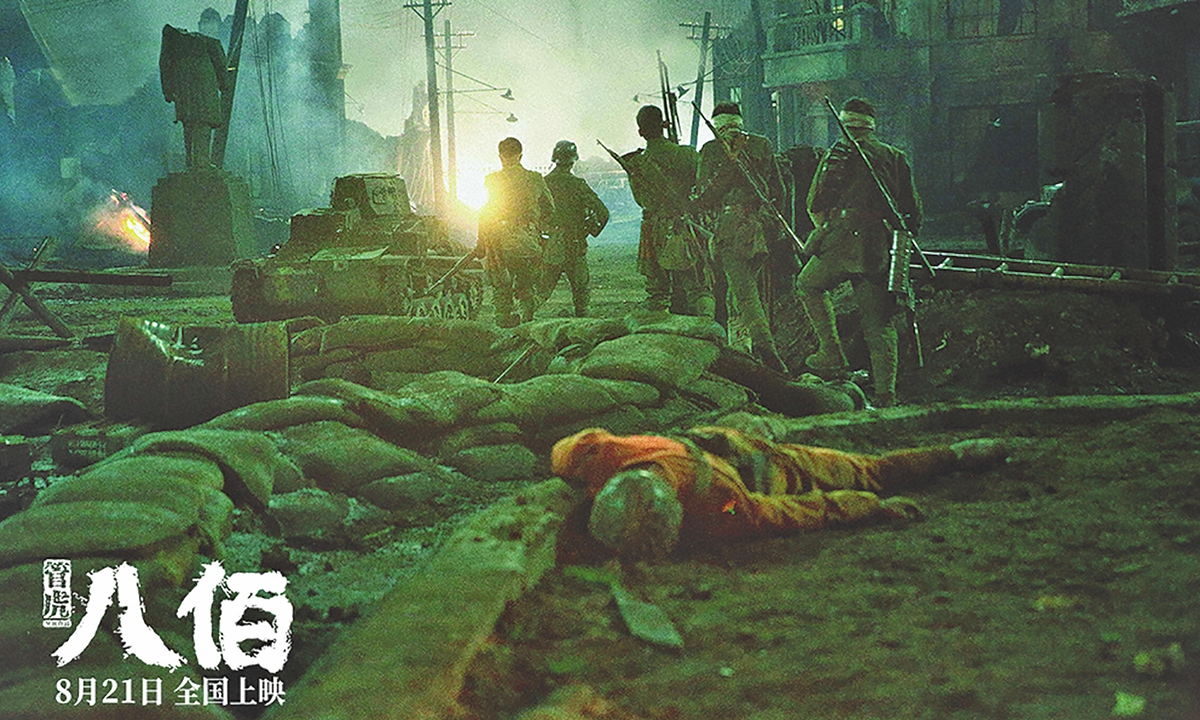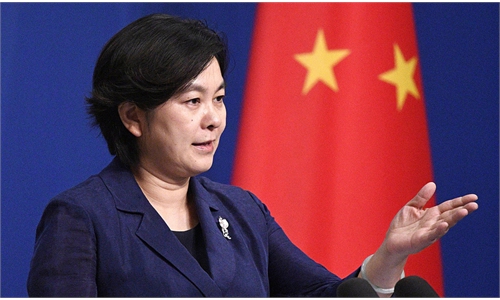Chinese filmmakers need to adapt a broader perspective to introduce China’s WWII history to the world

Promotional material for The Eight Hundred Photo: IC
Although numerous Chinese films and TV dramas set during the War of Resistance against Japanese Aggression (1931-45) have introduced local audiences to the brutal history of Imperial Japan's invasion of China, more work needs to be done in the entertainment industry to make productions that can capture the interest of overseas audiences so they too can learn more about this dark period of history and China's role in the war effort.
Amid the 76th of anniversary of Imperial Japan's surrender in WWII on Sunday, Chinese news website guancha.cn posted a 2018 interview with famed Chinese director Jiang Wen, who at the time was promoting his film Hidden Man. The director's remarks concerning how WWII has been portrayed in the Western and Chinese entertainment industries ended up sparking numerous discussions among netizens.
In the interview Jiang said that due to the efforts of foreign filmmakers even Chinese people from small rural villages are aware of the atrocities committed by the Nazis during WWII, but when it comes to introducing the crimes the Imperial Japanese Army carried out in China and the broader Asian region, such as the pervasive sexual enslavement of "comfort women," to the world, the Chinese filmmaking industry has not done enough.
"In 1937, China faced national disintegration and posed a national resistance to the invaders, which was the most important work in the world. The reason why the Chinese sitting here know that the Nazis were bad people and the Jews were persecuted is because of the unremitting efforts of foreigners. Every year their investors and artists try to get a young man growing up in a small Chinese town to know what the Nazis did, but to a large extent many people in other places don't know what [Imperial] Japan did [in China]," he said.
Of course there are many films and TV dramas about China's fight against Japanese aggression during WWII, but an overwhelming majority of these are focus on the Chinese perspective alone, while only a few, such as the 2011 Nanjing Massacre film The Flowers of War, attempt to approach the subject from a global perspective by including a foreign perspective or character.
As such more effort needs to be carried out to produce films that can touch audiences both within and outside China by depicting the war in the context of world history.
Focusing on the efforts of those who fought alongside China is one such path to take.
To mark the 76th anniversary of Japan's defeat, an exhibition introducing the efforts of Chinese and Koreans to fight against the Imperial Japanese invaders is currently being held in South Korea. The exhibition shows how many Koreans came to China to fight after Imperial Japan colonized the Korea Peninsula.
Chinese and Korean people jointly combating the invasion is just one of numerous examples that can be adapted to the large or small screen.
Shi Wenxue, a film critic based in Beijing, gave positive feedback to some present films and TV dramas against Japan's aggression, particularly noting the achievements of the 2006 Chinese film Tokyo Trial, which involved actors from 11 countries and regions to depict court scenes from the International Military Tribunal for the Far East in Chinese, English and Japanese.
"The crimes of Imperial Japan are presented in full detail in these works," he told the Global Times.
He also noted that classic Western films Jiang mentioned in the interview, such as Schindler's List, are humanitarian and anti-war.

